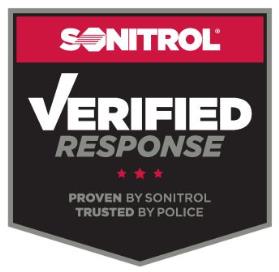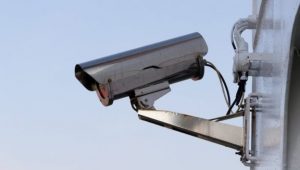
It happens way too often. Burglars and thieves break into a business, cause major damage to the property, and get away with valuables that can be costly to replace— not to mention a company’s potentially proprietary information.
Even with a security system in place, a lot of these break-ins generate slower than desirable police response or go undetected with law enforcement not being notified until the owner arrives the next morning. So, what went wrong? Was the system poorly designed? Was there an equipment malfunction? Did the police not arrive in time to catch the criminals? Maybe the technology being used does not provide for verification?
The successes related to having audio alarm verification can be ascertained through industry research, which shows there have been over 179,000 documented apprehensions and counting since 1977. It is widely known that audio alarm verification is unique and assists in decreasing police response time, and significantly increases the chance of apprehending criminals and preventing the loss of goods.
In fact, audio alarms provide law enforcement critical intelligence before entering an active crime scene, information that cannot be received from a non-verified alarm system or by a video verification alone. Additionally, they may help reduce the number of false alarms, allow better alignment of the number of responding police resources, and is proven to help apprehend more criminals.
What is a Verified Audio Alarm?
Sonitrol, the company that invented audio alarm verification, has created a unique, patented audio technology — effectively intelligent microphones combined with human operator intelligence. Upon arming the security system, the audio sensors are constantly listening for unusual or impact-activated sounds of entry, or they are triggered by other devices such as motion sensors, door contact, glass breaks sensors, etc.
The initial sounds of entry along with live audio are then transmitted in real-time to a central station operator, who is then able to determine if there is an actual alarm event occurring, and if so, will immediately dispatch police.
The audio quality is such that the central station operators can isolate and determine where the audio is coming from in the facility (different rooms or places within a business), and in many cases, even what the intruders are saying. This critical information may also be provided real-time to live 911 dispatchers. If video verification is also added to the business’ security system, they also can see live video of the intruders, and permit the central station operators to visually report what the intruders are doing, and where they are located in the facility, providing an additional level of verification.
Sonitrol Great Lakes has reliable verified security solutions to protect your business. Contact us to learn more.

